Top Ten Tuesday is an original feature/weekly meme created at The Broke and the Bookish. The feature was created because The Broke and Bookish is particularly fond of lists (as am I!). Each week a new Top Ten list topic is given and bloggers can participate.
Today’s Topic: Top Ten Most Intimidating Books (might be intimated by size, content, that everyone else loves it but you are sure you won’t, etc.)
For me this one isn’t a very hard one as I find many of the lengthy classics very intimidating. I know many readers hate that they had to read them in school, but I wish I had so that I’d have them under my belt. The most intimidating books for me are:
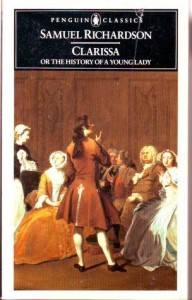 1. Clarissa, or the History of a Young Lady by Samuel Richardson- I learned about Clarissa in my Gothic Literature class when I was on a gothic lit reading kick. This one fascinated me because it not only sounded interesting, but I found out that it was one of the longest books in the English language. Since then, I have tried to start it numerous times, but it is a majorly tough one and at 1534 pages it is hard to push yourself past the “slow start”.
1. Clarissa, or the History of a Young Lady by Samuel Richardson- I learned about Clarissa in my Gothic Literature class when I was on a gothic lit reading kick. This one fascinated me because it not only sounded interesting, but I found out that it was one of the longest books in the English language. Since then, I have tried to start it numerous times, but it is a majorly tough one and at 1534 pages it is hard to push yourself past the “slow start”.
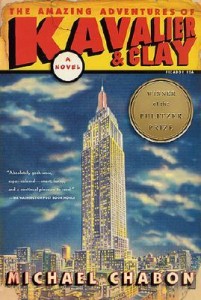 2. Amazing Adventures of Kavalier and Clay by Michael Chabon- This is another book on the list that I’ve begun. I started reading this book because my sister, dad, brother, and everyone else in the world (including the Pulitzer Prize committee) loved it and I really enjoyed Wonder Boys; however, I just could not get through Kavalier and Clay. Since abandoning it, it sits on my shelf and taunts me. One day, I want to reread and finish.
2. Amazing Adventures of Kavalier and Clay by Michael Chabon- This is another book on the list that I’ve begun. I started reading this book because my sister, dad, brother, and everyone else in the world (including the Pulitzer Prize committee) loved it and I really enjoyed Wonder Boys; however, I just could not get through Kavalier and Clay. Since abandoning it, it sits on my shelf and taunts me. One day, I want to reread and finish.
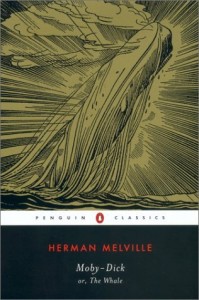 3. Moby Dick by Herman Melville- Not only is this book big, it just doesn’t interest me, yet it is one of the first books that people assume I’ve read since I have an English literature degree. I then explain that my focus was on 20th century literature and it is like my degree isn’t as fancy as “regular” English lit degree holders. Since then, Moby Dick, along with most of the books on this list (#4, 5, 6, 7, 10), are books that people assume I’ve read and I wish I had, but I haven’t.
3. Moby Dick by Herman Melville- Not only is this book big, it just doesn’t interest me, yet it is one of the first books that people assume I’ve read since I have an English literature degree. I then explain that my focus was on 20th century literature and it is like my degree isn’t as fancy as “regular” English lit degree holders. Since then, Moby Dick, along with most of the books on this list (#4, 5, 6, 7, 10), are books that people assume I’ve read and I wish I had, but I haven’t.
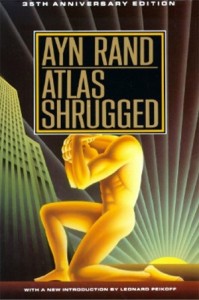 4. Atlas Shrugged and other books by Ayn Rand- Another huge book, 1168 pages, and one that I “should have read in school.” Also, the whole idea of the book just is intimidating in general for me.
4. Atlas Shrugged and other books by Ayn Rand- Another huge book, 1168 pages, and one that I “should have read in school.” Also, the whole idea of the book just is intimidating in general for me.
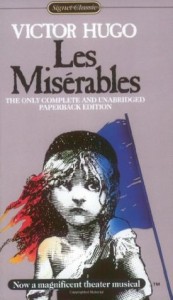 5. Les Miserables and other books by Victor Hugo- I love this musical and after reading Phantom of the Opera when I was in middle school, I wanted to read Les Miserables as well, but MAN it was torture. I promised myself I’d try it later and I did. 5 times. But I never made it through. Watching Ricki struggle through it makes it even more intimidating to me. I always wanted to read the book behind the musical, but who knows if I’ll ever face this fear.
5. Les Miserables and other books by Victor Hugo- I love this musical and after reading Phantom of the Opera when I was in middle school, I wanted to read Les Miserables as well, but MAN it was torture. I promised myself I’d try it later and I did. 5 times. But I never made it through. Watching Ricki struggle through it makes it even more intimidating to me. I always wanted to read the book behind the musical, but who knows if I’ll ever face this fear.
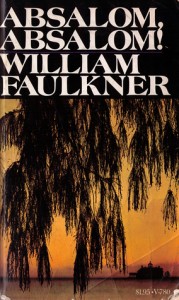 6. Absalom, Absalom! and other books by William Faulkner (except The Sound and the Fury which I have read)- Reading William Faulkner is one of the toughest experiences I’ve ever had. I actually really enjoyed it when I read it, but that was in a sort of lit circle where we discussed and had help. I cannot imagine reading his books alone. If you haven’t read Faulkner, I recommend reading at least one of his novels, but I also recommend doing it in a book club (and don’t be afraid to google for help!).
6. Absalom, Absalom! and other books by William Faulkner (except The Sound and the Fury which I have read)- Reading William Faulkner is one of the toughest experiences I’ve ever had. I actually really enjoyed it when I read it, but that was in a sort of lit circle where we discussed and had help. I cannot imagine reading his books alone. If you haven’t read Faulkner, I recommend reading at least one of his novels, but I also recommend doing it in a book club (and don’t be afraid to google for help!).
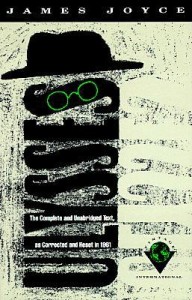 7. Ulysses and other books by James Joyce- Doesn’t Ulysses intimidate everyone?!
7. Ulysses and other books by James Joyce- Doesn’t Ulysses intimidate everyone?!
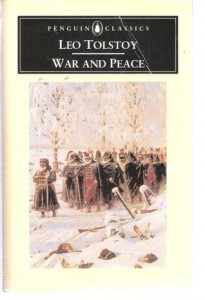 8. War and Peace & Anna Karenina and other books by Leo Tolstoy- I have read one Tolstoy book, The Death of Ivan Illych, and really enjoyed it (actually one of my favorites from my Death and Dying class), but I’ve always avoided everything else of his. I’m not sure why, but between the synopsis and length, they’ve always intimidated me.
8. War and Peace & Anna Karenina and other books by Leo Tolstoy- I have read one Tolstoy book, The Death of Ivan Illych, and really enjoyed it (actually one of my favorites from my Death and Dying class), but I’ve always avoided everything else of his. I’m not sure why, but between the synopsis and length, they’ve always intimidated me.
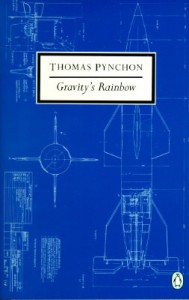 9. Gravity’s Rainbow and other books by Thomas Pynchon- This one intimidates me because I worry that I just won’t get it. Does that make sense? And it is so big as well!
9. Gravity’s Rainbow and other books by Thomas Pynchon- This one intimidates me because I worry that I just won’t get it. Does that make sense? And it is so big as well!
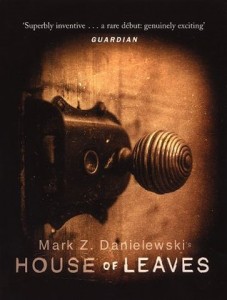 10. House of Leaves and other books by Mark Z. Danielewski- This title is another case of “all of your loved ones like it, you should too, right?!”. Is it bad that I have no interest? Should I? Everyone says I should…
10. House of Leaves and other books by Mark Z. Danielewski- This title is another case of “all of your loved ones like it, you should too, right?!”. Is it bad that I have no interest? Should I? Everyone says I should…
What book intimidates you?
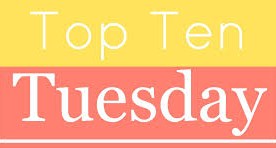

I would include Paradise Lost and In Search of Lost Time on my list of intimidating books. (I wonder if it’s significant that both books have “lost” in the title?) I haven’t read Moby Dick, but that’s because I don’t have time. You really should give Kavalier & Clay another chance. It is, in a word, amazing! 🙂
I think if I hadn’t had a professor giving me the page-by-page reading of Paradise Lost, I never would have made it. That is surely a tough one.
I will give it another chance one day when I get past the fear of it 🙂
I love this list. Anything by James Joyce is first on my list (and I’m actually having to read Portrait of the Artist for a class now). Anything by Faulkner is second. Clarissa is long, but I really liked it. I wish I could get myself through Anna Karenina. I like what I’ve read, I think I just keep picking it up when I have too many other distractions (which is probably anytime).
Ah, James Joyce–yes! I would agree with Faulkner, too, but that is just because I know I won’t love it. I had to read two in college and suffered.
I cannot believe you’ve read Clarissa!!I haven’t met anyone but my gothic literature teacher that has read it!
For the longest time Uglies by Scott Westerfeld scared me. Some of my intervention students were required to read it and I couldn’t get myself to read it. I finally got the audiobook and trudged my way through listening – not my favorite unfortunately. I am trying to be more at peace with classics now. Haven’t picked one up since early college.
I try to read one classic every summer, but I tend to cheat on that. Almost every time, I find the book to be boring, boring, boring. I have gotten lucky once or twice.
I can see why Uglies would be intimidating, but way to face your fears 🙂
Yes to Atlas Shrugged, and you might as well add The Fountainhead. I used to be intimidated by Native Son, and then I tried it and loved it. I would say anything Jane Austen. I tried one of her books as a teenager and hated it. I am not intimidated to read them but afraid to hate them if I try them as an adult.
I completely understand! I, personally, like Jane Austen, but I feel that way about many other classics.
I tried a few times, when my age was still in the single digits, to read Moby Dick and gave up very quickly. Too boring, and the language was out of my league in third grade.
I’d love to read Clarissa, since hearing it’s supposedly the longest novel in history. The longer a book is, the more I want to read it. I’m the weirdo who powered through War and Peace in only 19 days, and felt disappointed it didn’t take me two weeks max. I’m intimidated by long political and economic treatises, and some classical literature from the era when overly flowery prose and stuffy language was in.
War and Peace in 19 days?! Impressive!!!
Lee said below that Clarissa was good- it may be worth a read 🙂